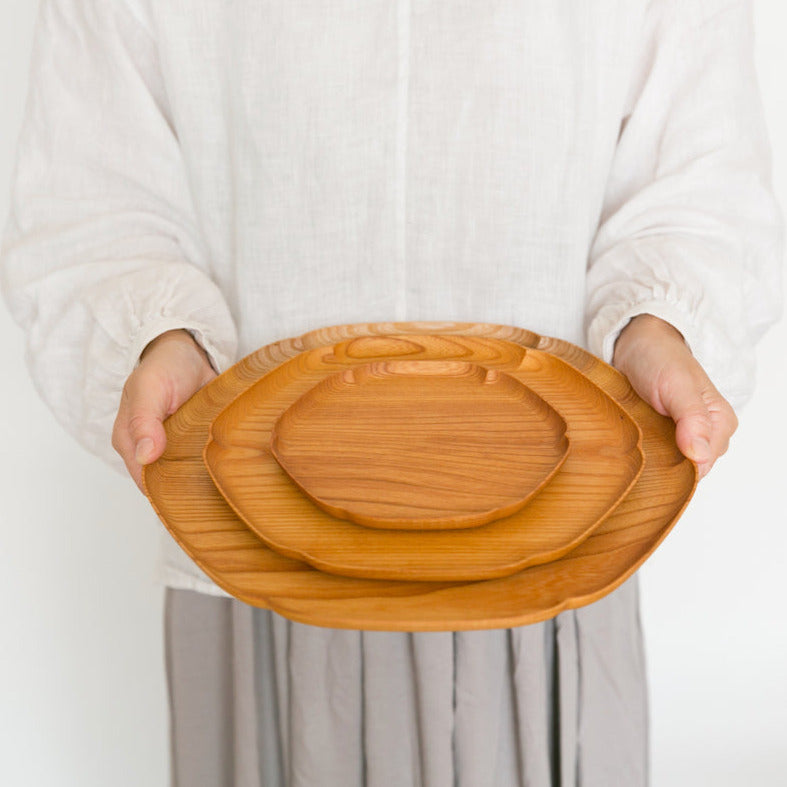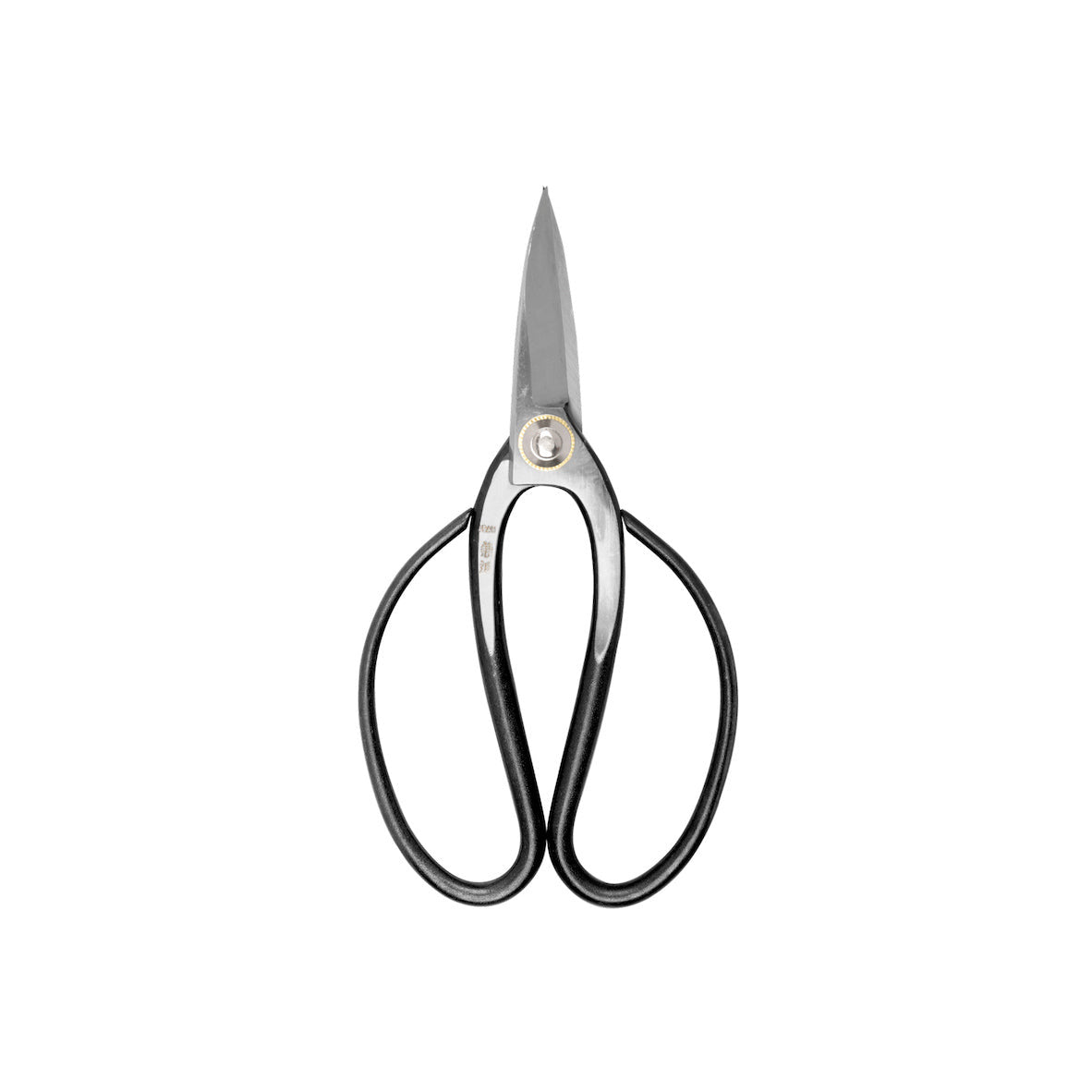
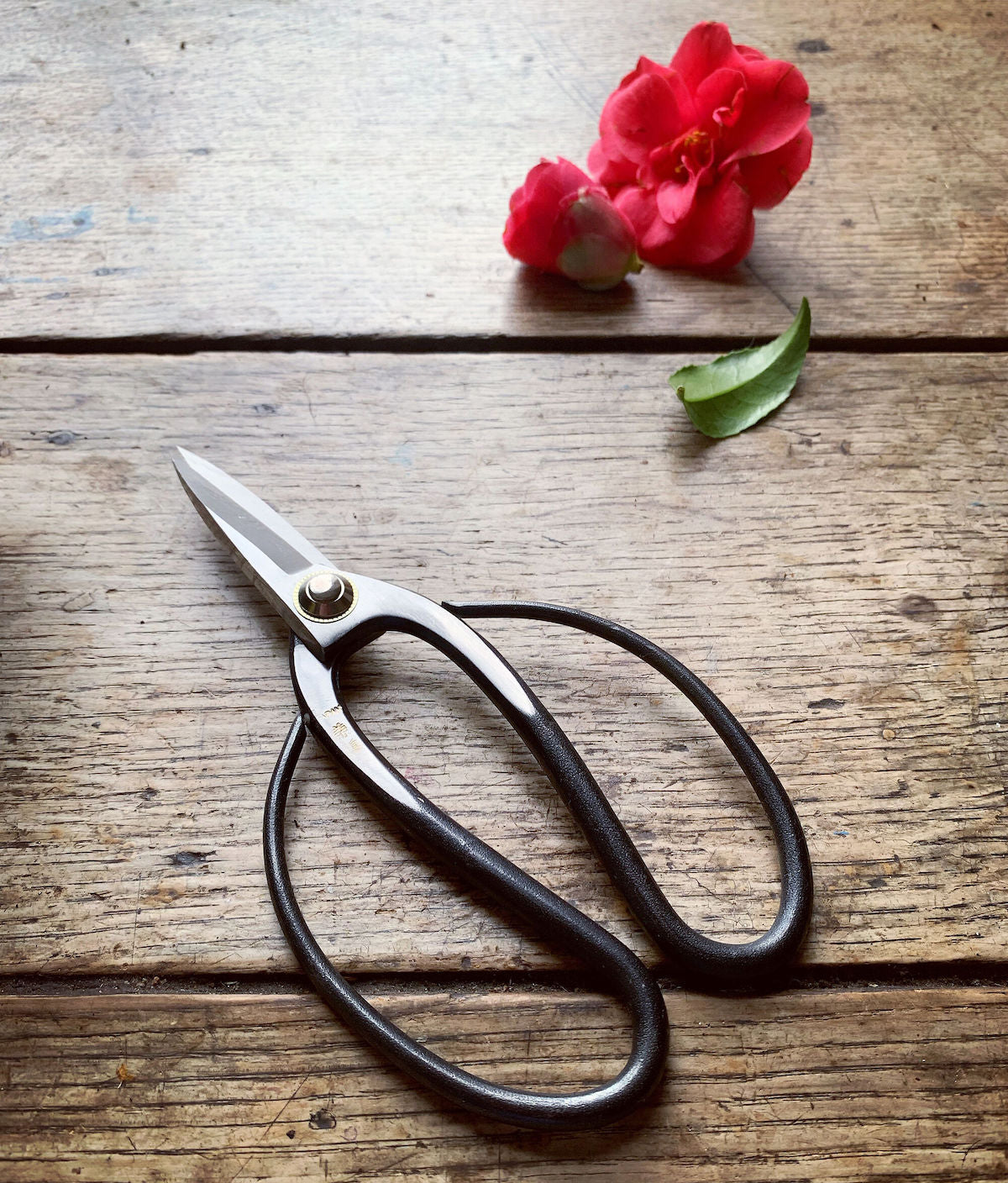
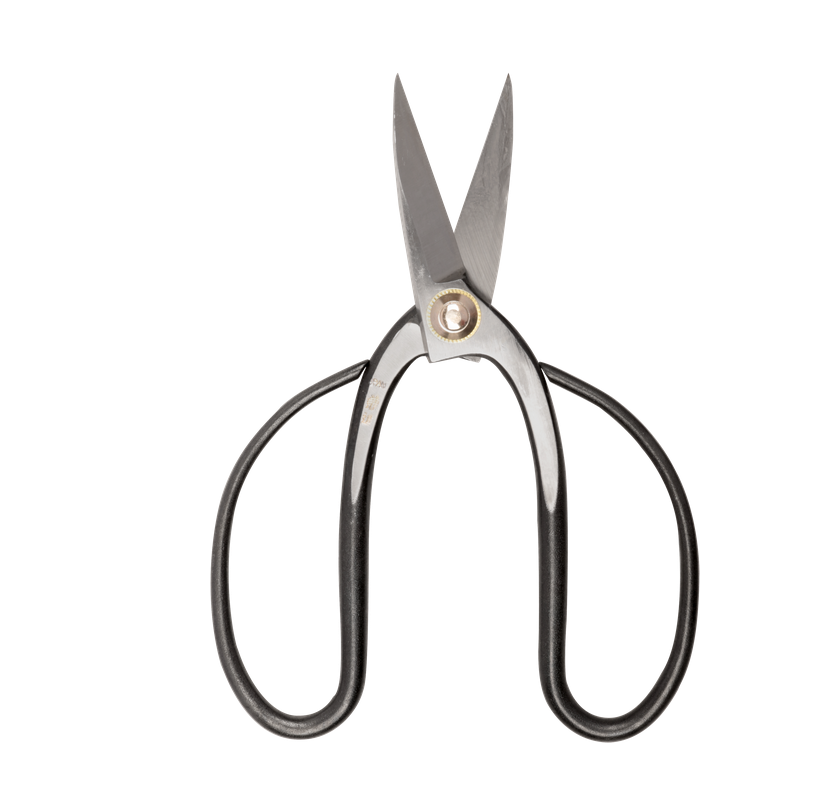
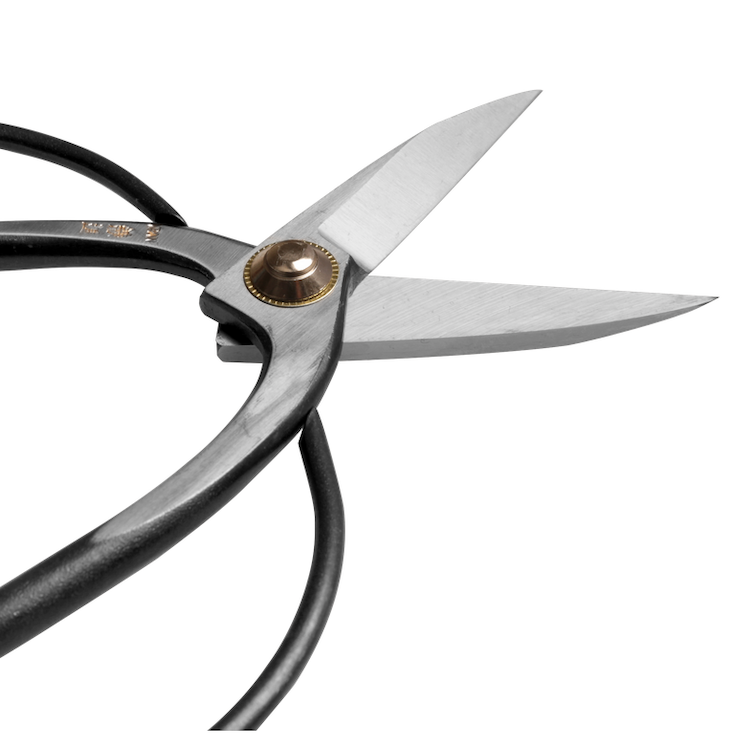
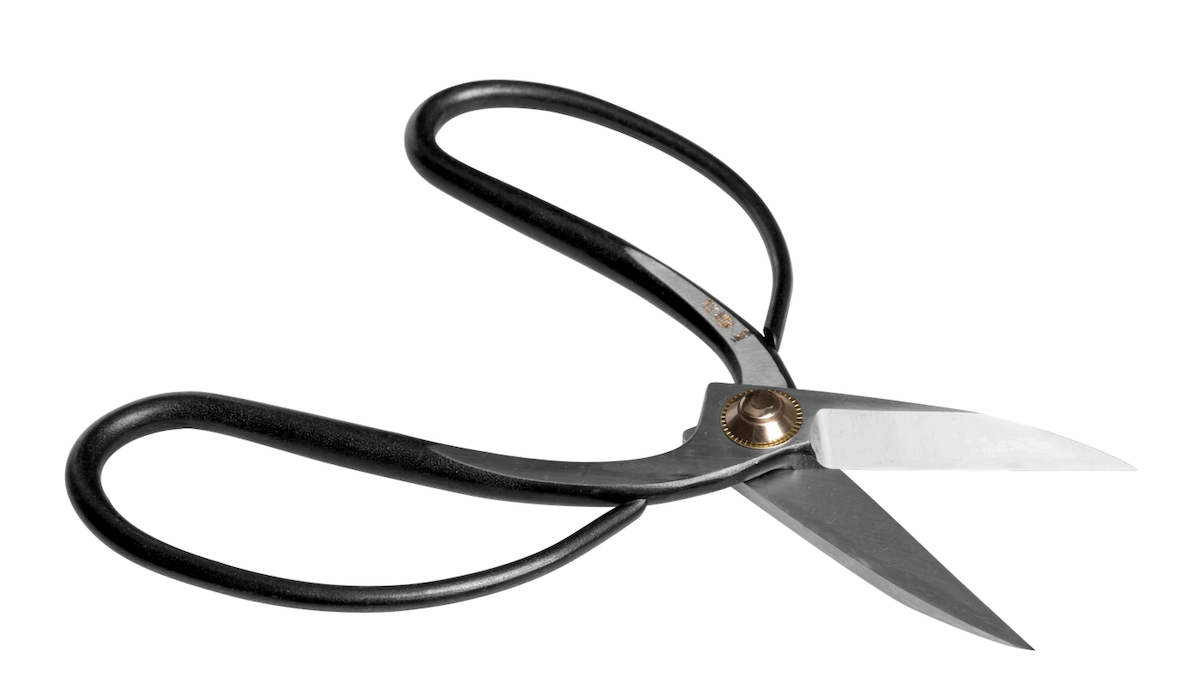
All-purpose scissors Bonsai Kaneshin | Carbon steel
- Material scissors: Carbon steel
- All-purpose scissors
- Scissors are supplied in a gift box.
- Dimension: 185 x 96 x 19mm
- Blade length: 55mm
- Weight: 170g
- Handmade in Japan
 Sofort lieferbar
Sofort lieferbar
Bereits in 2-3 Werktagen bei dir.
Kostenfreier Versand ab CHF 100,-
Choose options





Beschreibung
Fit for Garden shears holster cowhide
High quality all-purpose shears for leaves, buds and smaller twigs, as well as fine roots. Also suitable for the garden.
Care and use instructions:
Most Niwaki tools are made of carbon steel - this means that with regular use they will stain (and eventually rust) and gradually lose their sharpness. Caring for them involves three things.
1. Proper use:
- Japanese steel is hard and sharp and can be more brittle than some people are used to - it will break if overused .
- Do not cut wire, metal, stone, plastic or any other hard material (even bamboo fibres and some very hard woods, especially knots and burrs, can damage steel edges) .
- Do not twist or apply uneven pressure .
- Cut diagonally across the branches (not straight) so that you cut along the fibres .
- Watch the maximum cutting dimensions and don't overdo it (shears are not loppers)
- Use the base of the blades, not the tips, for heavier cuts .
2. Keep clean:
- Remove leaf resin, rust and dirt with a Crean Mate and water .
- Dry, wipe with Camellia oil and store in a dry place .
3. Keep them sharp:
Even new tools need sharpening after a certain time. For best results, use a grindstone of 1000 grit, for general sharpening.
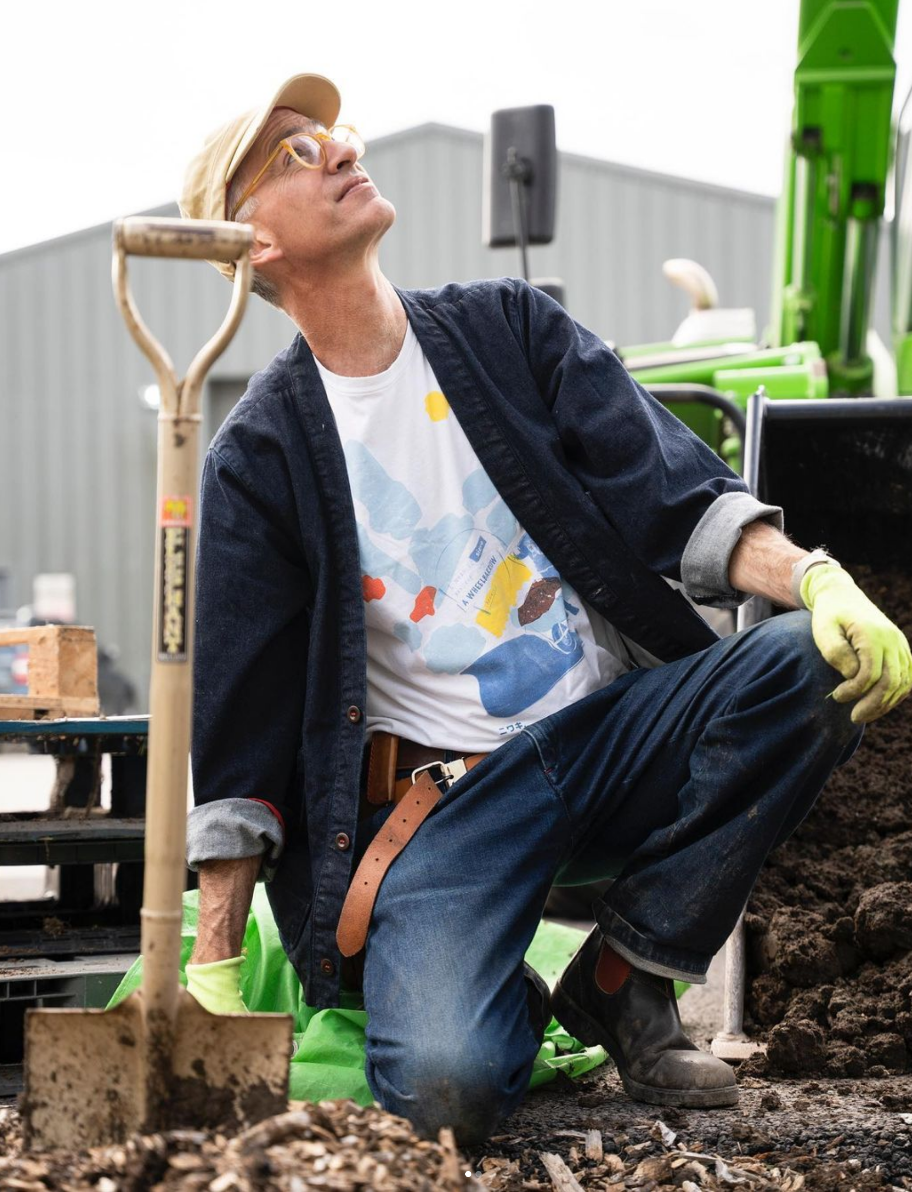
Die Story zu NIWAKI
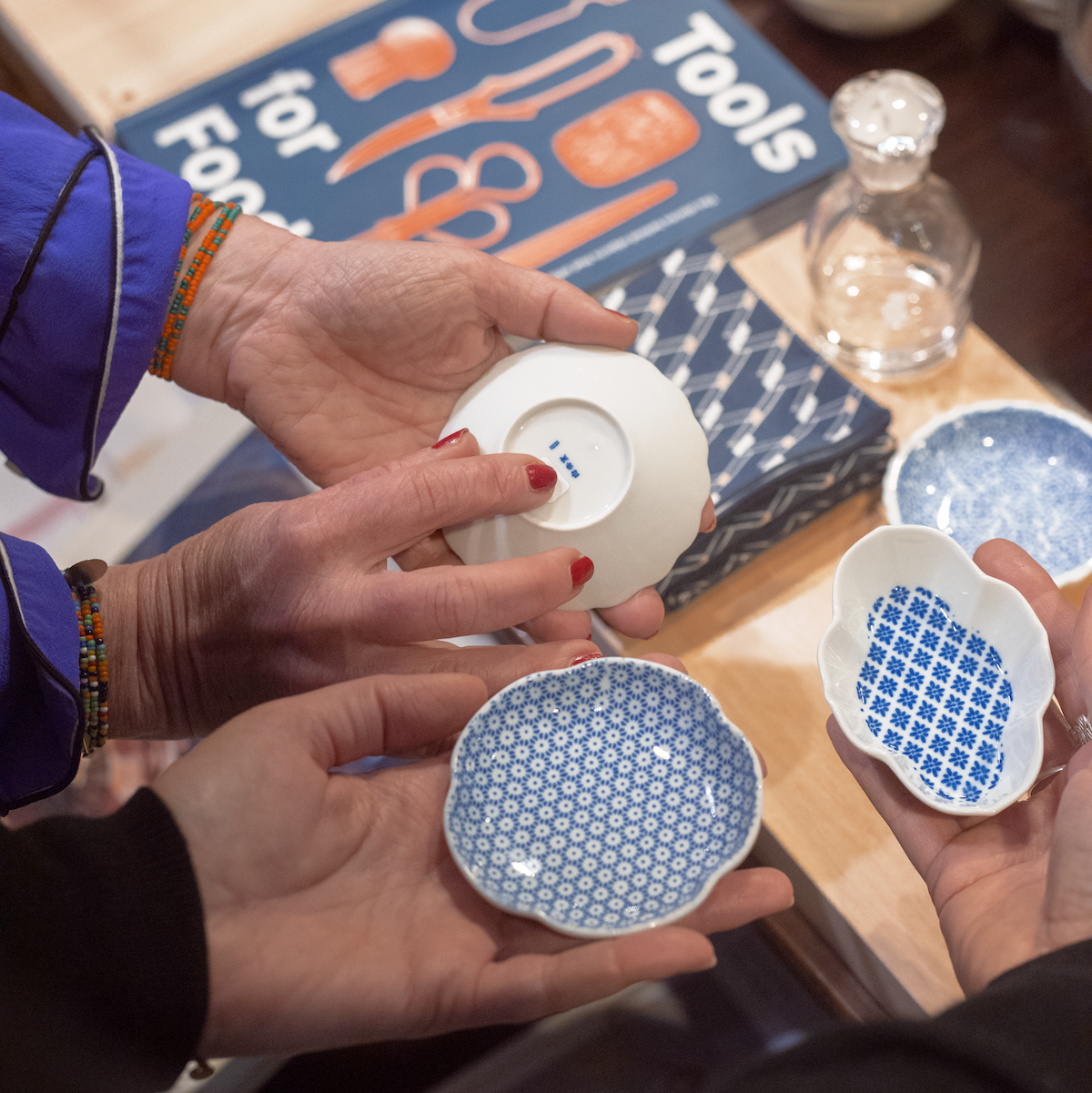
Wollt ihr wissen wer hinter ASANDRI steht
«Wir glauben, dass die Kombination von grossartigem Design und handwerklichen Können wichtig ist. Deshalb unterstützen wir Handwerker weltweit, um ihre Fähigkeiten und Handwerksbetriebe für viele weitere Generationenzu erhalten.»
Kontaktiere uns: info@asandri.com
